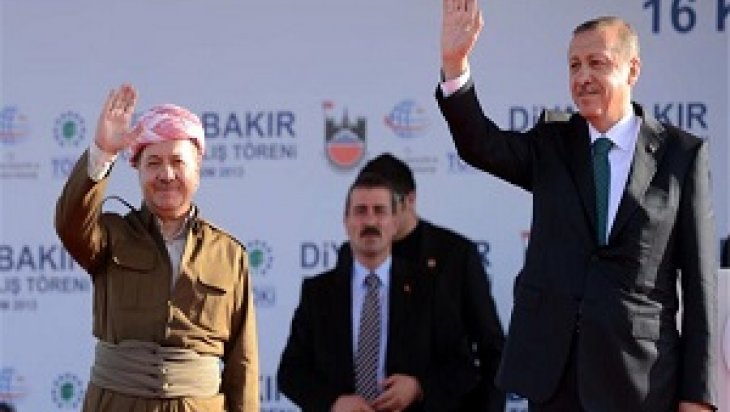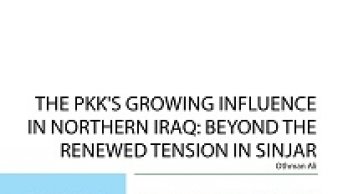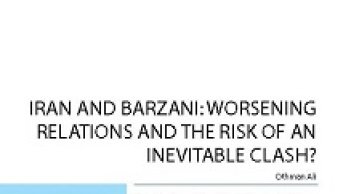The Failed coup presentation in KRG Media: Signs of Growing interdependence between KRG and Turkey

The media, political groups, and the people in northern Iraq paid special attention to the coup attempt in Turkey on July 15, 2016. A close reading of the way the coup was presented here points to the growing interdependence between Turkey and the KRG. The media coverage also reflected, to a considerable degree, the political divisions within the KRG. The pro-Kurdistan Democratic Party (KDP) media organs sided with the government against the coup leaders. However, the media which is close to the newly formed Gorran –Patriotic Union of Kurdistan bloc to a large degree sympathized with the coup. The organs of the Islamic groups, especially those of Yekgertu and Komal, were generally giving an anti-coup coverage to the events. People in the region had also shown strong interest toward the coup through social media. Here the anti-coup tendencies scored high too.
Before we survey the way media presented the coup, it is important to point out that, except for Gorran -the Change Movement in Kurdistan- and the PUK, all Kurdish parties and groups have condemned the coup. The KRG’s Head of Foreign Relations and the President’s Chief of Staff, Fuad Hussein, on Saturday visited the Turkish consulate in Erbil to express their support. "Democratic values and principles should be respected, along with the will of the people,” the KRG government spokesperson Safeen Dizayee, wrote on Twitter.
Also, the KRG Prime Minister Nechirvan Barzani, in a statement, said that he backed the ‘triumph’ of supporters of Turkey government over the coup plotters. Barzani added that “We believe the failed coup will strengthen the institutions, government and people of Turkey and will prevent possible coup attempts in the future.” He also congratulated Turkey’s President Recep Tayyip Erdogan, Prime Minister Binali Yildirim, all parties and the people of Turkey, who had a major role in thwarting the coup.
On 16 July, Kurdistan Islamic Group (Komal) issued an equally strong statement on its website against the coup. The statement reads as follows: “We, as the Kurdistan Islamic Group, condemn the coup attempt in Turkey, and we view it as an attempt to break the will of the Turkish nation. Turkey has democratically and freely elected its president and government.” The Kurdistan Islamic Union (Yekgirtu) on its part condemned the coup and its statement which was issued on July 16, which reads as follows: "Fortunately, through public awareness and stability of state apparatus, the bravery and resistance of the Turkish president, government, nation, and leadership of the Justice and Development party (AKP), they immediately foiled the attempted coup.”
Contrary to the Kurdistan Democratic Party leaders, each of the Patriotic Union of Kurdistan, and the Gorran (Change) Movement appeared to be happy with the coup attempts. Shanaz Ibrahim Ahmed, the sister of Hero Ibrahim Ahmed, the de-facto leader of the PUK and head of the party’s foreign organizations, posted the following on her Facebook in the night of the coup: "historic night for which tomorrow God might recompense our lost lives of Shirnakh and Jazira; a night which a mouse hole might become a palace for the dictators and sultans.”
During the first hours of the coup, each of the PUK’s Kurdsat News and Gali Kurdistan satellite TV were spreading the news that President Erdogan asked asylum from both Germany and Russia, and that both requests were declined. However, as the news of the doomed coup began to come out, even the PUK began to denounce it. It issued a statement on Saturday denouncing the attempted coup: "we are against any kind of coup since Kurds have been victims of coups since the 1940s. …. and at the same time we hope the failed attempt will open new horizons leading towards constructing a new road map of political, economic and democratic resolutions in Turkey and North Kurdistan." Barham Salih, the deputy head of the PUK, drew attention to the rare show of unity. He tweeted as follows: “Profound moment in history as Turkey's ruling & opposition parties unite against coup; worst democracy better than best military rule.”
For almost several days, the coup was the main news items in the region. Those who stood against the coup maintained that the stability of Turkey and the continuity of Justice and Development party were essential for the survival of the democratic experience in the KRG for several reasons. The foremost of which is Baghdad’s hostile attitude towards the KRG and Iran’s siding with Baghdad in this conflict. This situation makes Turkey the only political and economic outlet for the Iraqi Kurds. Moreover, Turkey constitutes the KRG’s main economic partner and most of its development projects are carried out by Turkish companies. It is interesting to point out that the news of the coup had direct impact on the prices of many food, and construction items, which witnessed considerable rise. On 19 July, a local writer in Shafaq news compared the devastating impact of the failed coup on the KRG to the after effects of a huge earthquake. This demonstrates the growing interdependence between the KRG and Turkey.
On 19-07-2016, Mr. Abu-Bakr Karwani, an ex-KRG law- maker, wrote in Levin Press that those stood for the coup and sympathized with it had done so for several erroneous assumptions. Firstly, the opponents of Masud Barzani thought that the end of the AK Party rule in Turkey would weaken his power. This ignores the fact that the pre-2001Turkish governments had come to the aid of Barzani when the AK Party was not in power. Secondly, Kurds were the main victims of all previous coups in Turkey. Moreover, the current government has gone beyond expectations of many Kurds in addressing the Kurds’ national rights within Turkey. Thirdly, those who joined the chorus in defending the coup were either deceived by the early hours of the pro-coup western news reports, or did so out of a narrow ideological political tendency thinking that the end of president Erdogan will signal the end of political Islam.
To sum up, the failed coup is more occasions which show the extent to which KRG’s security is tied to that of Turkey. Given the factors discussed above, the KRG's security and very survival depends heavily on stability and security of Turkey. Had the coup succeeded , the Iraqi Kurds would have suffered the most. This is widely accepted by reasonable observers in the KRG.








